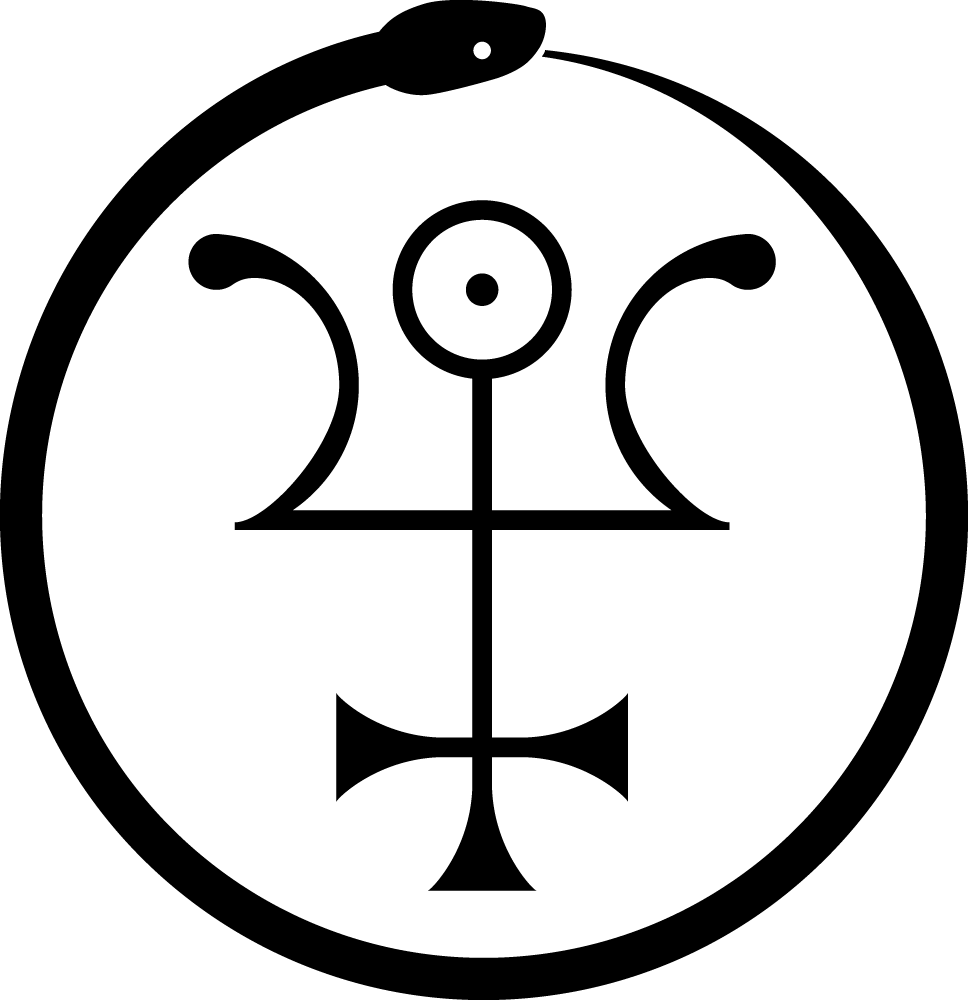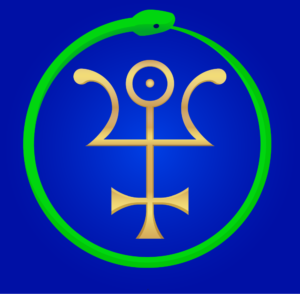Birth, Death and Jargon
Liber AL II: 41 forms a part of what is known as the Calendar of our Church, a list of rituals and feasts recited by the Deacon in the Gnostic Mass. It reads as follows:
A feast for fire and a feast for water; a feast for life and a greater feast for death!
As a sort of back-formed colloquialism, the term ‘greater feast’ has come to be used, in some circles, as a synonym for the date of person’s death (or its anniversary); and some have taken this further and have begun using the term “lesser feast” to refer to a person’s birthday. I think this is usually done simply as an attempt to employ insider jargon; but it is possible that the use of the term ‘greater feast’ is at least partially euphemistic–intended to avoid using the unlucky word ‘death,’ after the old tradition of using such terms as ‘passing away,’ etc.
In the New Comment on AL II:41, Crowley says,
The feast for life is at a birth; and the feast for death at a death. It is of the utmost importance to make funerals merry, so as to train people to take the proper view of death. The fear of death is one of the great weapons of tyrants, as well as their scourge; and it distorts our whole outlook upon the Universe.
In the D Comment on AL II:34-44 (the entire Calendar), Crowley says,
With abrupt vigour the subject swings over to the triumph of the Masters. Aiwass bids us rise up and awake. He prescribes ways of worship. We are to invoke with joy and beauty. He begins by making a list of rituals and feasts; and in the course of this he works himself up into a state of rapture so that these rites at first clearly defined in order, gather force, wave upon wave, quicker and quicker, until at last he proclaims all times and places as proper for feasts. At the end he exclaims once more that all such pleasures are free from any taint of hidden poison. We are to make the present perfect, without the least fear that we are making trouble for ourselves in the future. True, our bodies are dissolved; but this brings us into full timeless rapture. We enjoy all that may be, as we could not even at the best while forced to measure our Magick in terms of the body and mind. It may be that events cease to occur, that they become one single event, a constant state of joy.
So the term “greater feast” isn’t even correct insider jargon (Crowley didn’t even use the term in his commentaries), and the term “lesser feast” even less so (it doesn’t even occur in Liber AL). Even the phrase [greater] “feast for death,” which Crowley did use, does not refer to the actual death of a person, but rather what we living people do to honor a person upon their death–i.e., celebrate.
‘Death’ is a perfectly fine word. It is used abundantly in Liber AL; sometimes with very noble and favorable connotations. As the above commentaries clearly state, we have no cause to dread it for ourselves. I think, personally, that we Thelemites should refer to a person’s death, straightforwardly, as their death. To substitute euphemistic terms like “greater feast” for the plain term ‘death’ is to subtly acknowledge our residual dread of it.
However, although we may indeed have no cause to dread our own deaths, grieving the death of a loved one is perfectly natural. Further, it is usually a necessary part of our human process of adaptation when a person’s life has been significantly changed by the loss of a partner, or a child, or a beloved mentor, or other person who has been a major part of their daily existence and may even have been a prominent factor in the shaping of their present character. Crowley’s advice that funerals should be made merry should not be taken to imply that any stigma should be attached to the natural grieving process.
So let us celebrate the life of the one who has died; and let us be kind, considerate, and, if possible, useful, to those who have lost a loved one.
First published in Agape 17:1, Spring 2017 e.v.

